I didn’t apply to be a manager. I didn’t get trained. I didn’t even get a heads-up.
One day early in my career, my boss simply stopped showing up. I was a mid-level individual contributor at Microsoft, trying to keep the team afloat, when someone said, “Stef, you seem to know what’s going on. Want to lead?”
That’s how I became a manager.
No one handed me a handbook. No one explained the shift I was about to make, from doing the work to supporting others who do it. And I said yes, because that’s what people do. But looking back, I was being set up to struggle.
That’s how a lot of people end up leading teams: by accident. And that’s a problem.
When performance becomes the only promotion criterion
We often assume that someone who’s great at their job will naturally be great at managing others. But the skills that make you a strong individual contributor don’t automatically translate to leadership.
Yet many organizations still promote based on output, not leadership readiness. According to Gallup, companies fail to choose the candidate with the right talent for the manager role 82% of the time. And only 35% of U.S. managers report being engaged at work themselves.
It’s not that these managers don’t care; it’s that most were never taught how to lead. They were promoted or moved into manager roles because they were technically competent, not because they had the capacity to support, develop, or coach others.
I saw it for years. And I lived it myself.
What we did about it
After years of watching this play out, I worked with two colleagues to launch an Aspiring Manager Forum at Microsoft. The goal wasn’t just to prepare people for management, but more importantly, it was to help them understand what the job really entails before they stepped into it.
We pulled back the curtain on the day-to-day realities:
- Coaching without having all the answers
- Giving feedback consistently, not just at review time
- Shifting from “how am I performing?” to “how am I supporting others?”
And something surprising happened: we didn’t just help people grow into leadership. We gave people permission to say, “Actually, I don’t want this.”
That was a win.
Some of the most valuable people I’ve worked with are those who chose to remain individual contributors. The problem is that many corporate cultures still view management as the default next step. We need to normalize alternate paths and support both tracks equally.
The missing skill no one wanted to talk about
One of the most meaningful projects I contributed to was helping define manager expectations at Microsoft: Model. Coach. Care.
That last word—care—sparked debate. Some felt it sounded too soft for a high-performance culture. However, in my experience, care is what separates the managers people remember from those they forget.
When people feel seen, supported, and trusted, they do better work. They stay longer. They grow faster.
In fact, Gallup found that employees who strongly agree their manager cares about them as a person are three times more likely to be engaged at work. High engagement, in turn, leads to increased productivity, better retention, and stronger business outcomes.
Care isn’t a personality trait, it’s a skill set. It means knowing how each person on your team likes to be recognized. It means understanding when someone’s “I’m fine” really means “I’m struggling.” It means showing up, not just for the work, but for the people doing it.
At ServiceNow, where I now lead Manager Excellence, we’ve built our leadership framework around this truth:
Grow Self. Grow Team. Grow Business.
In that order..
Because if you don’t know how to manage your own reactions, blind spots, and assumptions, you’re not ready to lead anyone else.
Leadership starts with self-awareness. Can you regulate your emotions under pressure? Can you recognize when your own biases are shaping how you evaluate someone’s performance? Can you take feedback, not just give it?
Too often, we skip this step. We hand someone a team before they’ve had a chance to understand their own leadership habits, strengths, and derailers. And when self-awareness is missing, the impact shows up in every interaction, missed opportunities, broken trust, and avoidable conflict.
Only once you’ve built that foundation can you effectively grow a team: by creating psychological safety, delivering honest feedback, recognizing individual differences, and supporting career development in ways that actually resonate.
And when that happens? Business results follow. Not magically, but because you’ve done the work in the right order.
Great leadership isn’t about scaling tasks. It’s about scaling trust, growth, and alignment, starting with yourself.
Why the human side of leadership matters more in the age of AI
Today, AI can draft your meeting notes, summarize feedback, and even suggest talking points. It’s transforming how we manage work. But it can’t do the hard parts of leadership.
AI can’t build trust. It can’t sense hesitation in a voice. It can’t coach someone through a difficult moment or recognize potential they don’t yet see in themselves.
In a 2023 Deloitte report, 86% of organizations said they expect the manager role to evolve significantly due to AI, but also acknowledged that the core human elements of leadership will become even more critical.
Efficiency is no longer the differentiator. Emotional intelligence is.
The best managers won’t be the ones who have the most data, they’ll be the ones who know how to turn it into human connection, growth, and trust.
The legacy that matters
Years after that first accidental promotion, I sat in the audience at a major Microsoft event watching someone I had once managed take the stage. It had been her dream to speak at that level. I’d watched her grow into that moment over the years. And as she walked onto the stage, I cried.
Not because of me, but because I got to be part of her becoming.
That’s what leadership is.
Not a title. Not a promotion. Not a performance review.
It’s helping someone become more of who they are. And doing it with care, consistency, and presence.
If we want more managers who can do that, we need to stop making them by accident and start preparing them on purpose, with purpose.
This article is part of the Precision Matters series. In the series, HR and L&D leaders share their expert strategies for utilizing Learning & Development tools to craft precise, impactful business outcomes and foster organizational growth.
Ready to turn insights into impact?

















